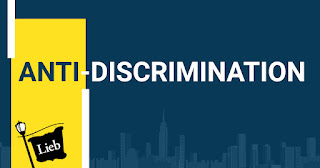- Don't Miss Deadlines: Federal discrimination lawsuits provide only 2 years from the wrongful act to bring a lawsuit. Some states extend this to 3 years. However, there are often much shorter timelines dependent on who the perpetrator is, so act immediately. To illustrate, employment discrimination generally requires a filing with the EEOC within 300 days. Plus, a collective bargaining agreement can limit the statute of limitations for union workers even further. Alternatively, if the government is the defendant, a notice may need to be filed within 3 months or less. So, act swiftly if you are a victim.
- Don't Forget the Past: Just because deadlines exist from the last act of discrimination, it's possible to leverage a law called the Continuing Violation Doctrine to reprise untimely acts of discrimination in a lawsuit. So, make sure that you bring every wrongful act that you have experienced to the table if you are a victim of discrimination. That is the only way it can be stopped.
- Discrimination is NOT Just Physical: If an environment is hostile and filled with harassment, that is enough to bring a lawsuit. In fact, states like New York lower the hostile environment standard from the federal rule of severe and pervasive to inferior terms and conditions so long as the harassment rises above petty slights and trivial inconveniences. If you feel harassed because of your orientation or gender identity speak up now.
- It Goes Beyond Your Actual Orientation and Gender Identity: Your actual sexual orientation and gender identity are clearly protected from discrimination, but did you know that you are protected from discrimination even if the perpetrator got it wrong. The law also protects your perceived orientation and identity, which is particularly important for orientation because orientation needn't be confirmed from consistent sexual acts to exist.
- Retaliation is Illegal: Don't be afraid to speak up out of fear of reprisal. Simply, if you experience any negative retaliation whatsoever when you are fighting back against discrimination that you are experiencing, you can sue for that retaliation too. If retaliation happens at work, housing, education, places of public accommodation, or many other places, you can receive money damages for retaliation plus the court can order it stopped with your prior situation restored.
Thursday, June 02, 2022
Pride Month: 5 Tips to Stop Sexual Orientation and Gender Identity Discrimination
Thursday, January 21, 2021
Fair Housing Act Prohibits Discrimination on the Basis of Gender Identity & Sexual Orientation per President Biden
On Day 1 of President Biden's Term, he expanded our understanding of the Fair Housing Act by making clear that it includes protections against discrimination on the basis of gender identity & sexual orientation.
See his Executive Order on Preventing and Combating Discrimination on the Basis of Gender Identity or Sexual Orientation for your full understanding.
As explained by the President, the US Supreme Court ruled in 2020 that employment discrimination laws, which expressly prohibit sex discrimination, also prohibit discrimination on the basis of gender identity and sexual orientation; and that the same reasoning behind the Supreme Court's ruling will now be applied to the Fair Housing Act's prohibition of discrimination in the sale and rental of housing across our nation.
In fact, the Executive Order put all perpetrators on notice by stating that the government will issue plans, within 100 days, to effectuate its policy of enforcing these prohibitions against discrimination on the basis of gender identity or sexual orientation.
While many states, such as NY, and other locales, already prohibit gender identity and sexual orientation discrimination in housing, the Federal Government stepping in to enforce violations can change the game.
How will you change your business because of this Order?
Tuesday, October 08, 2019
Can Employers Discriminate Against Employees Based on Their Sexual Orientation or Status as Transgender? The Supreme Court to Weigh-In.
In the first two cases, Bostock v. Clayton County, Georgia and Altitude Express, Inc.v. Zarda, the justices will determine whether Federal law prohibits employment discrimination based on sexual orientation. (Federal law generally prohibits discrimination based on "sex"). In the third case, R.G. & G.R. Harris Funeral Homes, Inc. v. Equal Employment Opportunity Commission, the justices will determine whether employment discrimination against transgender people violates Federal law.
The decisions on both of these issues - which will likely be released in early 2020 - will be of great interest to both employers and employees.


